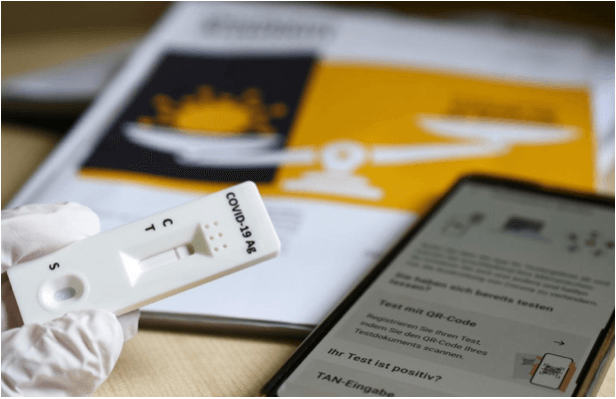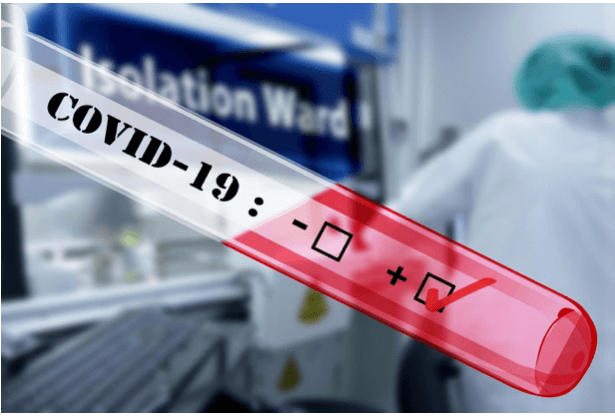
The current pandemic caused by the covid-19 virus has caused a lot of damage all over the world. This damage is not only limited to human health, but it has also drastically affected the economies, including many businesses, trade, and workplace setups. The United Kingdom has come out as one of the leaders in coping with the Sars Cov 2 virus and due to its testing and vaccination strategies.
Regular covid testing does not only allows to help early diagnosis and isolations of an infected individual but also lowers down the disease burden by stopping its transmission. With the business and work setups now opening once again, it is imperative that bulk Covid testing is conducted in the workplace setup to prevent it from becoming a hot spot for the spread of the virus and keeping the work environment safe. This is in addition to the recommendations by the United Kingdom Government and WHO to wear masks, have regular temperature checks, and sanitise frequently.
The number of times a week or a month that the employees in a workplace should be tested for Covid-19 has been a topic of debate for a while. Although testing every day is an ideal situation, as it will ensure that the employee is completely covid free every time they enter the workspace and could not potentially infect others around them – however, this might be tricky to achieve in practice. The number of times the employees should get tested in a workspace was investigated in a study, where tests were conducted on the employees every day, every three days, weekly and monthly. The results of the study showed that those who got tested every day had an overall reduction of 59.8 to 64.5% of the total number of infectious workdays. As compared to the everyday testing, those who got their employees tested every three days experienced a reduction of 37.7 to 41.7%; meanwhile, those who tested weekly saw a reduction of 19.8 to 23.8%. The lowest reduction of infectious workdays was seen for the monthly covid testing, which was only 2.8 to 7.4%.

A large proportion of the workforce in the UK is exposed to the covid-19 infections at their workplace; hence a thorough check and surveillance of the workplace – particularly for the covid-19 virus- is a must. This holds particular importance as a possible infection outbreak at the workplace does endanger not only the health and lives of the employees but also their vulnerable family members, roommates, and friends.
Hence regular testing, screening, temperature checks, and symptoms reports can ensure the monitoring of the disease burden of the infection amongst the employees. This will allow tracking of the employees who have been possibly exposed to the infections and in which departments they are currently working. (2)
Hence the workplace, which is a place where a group of people belonging to different households, localities, and exposures is meeting regularly, is a possible source of transmission of the virus, and regular testing in this environment can play an essential role in the control of infection. (3)
The term exposure is often misinterpreted and is defined as having a close contact of fewer than 6 feet with an infected individual for more than 15 minutes. (4)
Although many businesses and companies are now practicing the work from a home plan, there are several occupations that cannot be practiced at home, and the employee needs to be physically present at the workplace. Industries like the health care industry, retail, manufacturing, and food production cannot be completely shut off and need employees to keep them running. The health of these workers is at the highest risk due to their regular exposure, and industries like these where the employees are required to be physically present regularly should pay particular attention to bulk testing of the workforce – facilitated by wholesale purchase of test kits with quick results.
As mentioned earlier, a testing program designed for the workplace can play an essential role in the prevention of the spread of Covid 19. The purpose of testing in a business or office setup is similar to that of the bulk surveillance testing at the state or national levels – which is to prevent the transmission of the Covid-19 virus by allowing its early detection and isolation of the infected individual.

The common tests which are now used for workplace covid testing include those which give rapid results, and act as proof of patient health and allow them to continue working in the office environment and interact with their colleague.
The PCR tests which detects the viral RNA in the system was most commonly used for the general population and is still considered one of the most reliable methods for covid testing; the results for these tests are not delivered immediately and may show an individual to be positive weeks after they have clinically recovered. This will lead them to miss more work than they should and affect the company negatively. (5)
However, the regular screening of clinically healthy employees in a workplace setup is different from those who are showing symptoms, and their tests should not be conducted in the workplace. According to the United Kingdom Government, one should not visit the test sites if the employer of the employee is having symptoms. Instead, they should order the test kit at home and isolate themselves.
Other than the PCR tests, another popular method of Covid testing is the Serological tests, which are more commonly known as the antibody tests. These tests are based on the immune response of the individual being tested and mainly indicate the presence of two antibodies known as IgG and IgM.
If high levels of IgM antibodies are found in the tests, it usually indicates the presence of a current infection. On the other hand, the presence of high levels of IgG antibodies is usually indicative of a chronic or past infection. Even though there are discussions about the extent and duration of the immunity given by these antibodies against another reinfection from the covid 19, no accurate conclusion has been reached. (6)
Rapid Antigen home kits have gained a lot of popularity recently as they allow the individual to get tested at their homes or workplaces without having to wait in long queues or take appointments at the doctor’s clinics.
According to the WHO, the antigen detection rapid diagnostic tests, also known as Ag-RDTS, should have a sensitivity of at least 80% and a specificity of 97%. These tests are ideal to rule out the presence of infection in an asymptomatic person and may be used during traveling, before starting schools, or as everyday surveillance tests in a workplace setting. This is why businesses and companies should purchase accurate and high-quality antigen testing kits in bulk to regularly test their employees and keep the workplace safe for the workers and keep their company running. However, factors that should be kept in mind while using the Antigen tests are that these need to be used during the acute phase of the disease, as their use after the viral load has decreased may lead to possible false negatives.
The effectiveness of the rapid antigen tests was further evaluated in a study where two community-based programs were introduced in order to assess the prevalence of covid 19 and how it changes before and after the lockdowns. After taking consent from the participants, their job information was noted and was then tested using the rapid antigen tests. If the individuals showed positive results with the Rapid Antigen Tests, these results were further reconfirmed by using Reverse Transcriptase PCR Tests to confirm their effectiveness. The results concluded by proving an essential role of the rapid antigen test kits for the surveillance of covid 19 and assessment of the modes of transmission of the disease. It also showed the positive effect of lockdown on the number of positive results, as the new cases were reported to behalf after the lockdown as compared to what they were before. Moreover, respiratory symptoms like shortness of breath proved as independent predictors of the positive results of the rapid antigen tests. (7)
Even though regular checkups of the employees are now considered mandatory to preserve the sanctity and safety of the workplace environment, there are certain factors that should be considered.
The Covid tests are usually conducted on a large group of employees in a single room. Even if it might make the Covid testing procedure convenient, it may allow the transmission of the disease amongst the employees, even if one of them is infected. Hence, there is a need to ensure individual testing of the employees using portable and convenient testing kits rather than collecting a bunch of possible carriers together.
Furthermore, the current system of investigations needs to pay closer attention to the biohazards that may be associated with the bulk Covid testing. A regular system should be formed carefully that ensure a routine that needs to be followed on what needs to be done under everyday conditions and what needs to be done in extraordinary or emergency conditions.
Moreover, a lot of businesses and multinational companies require a detailed health assessment of the employee before they are hired. Since Covid-19 testing has become one of the most important tests in the past few years, it can also be used as a health certificate to work for overseas companies or even local businesses. Hence, adding the covid 19 test to the regular work health assessment form here onwards will not only take the mental turmoil that the employer and the other employees of the company have to go through when a new person is hired in the company but also ensure workplace safety.
Another factor that must be considered while returning the workforce back to the office environments is their susceptibility to the covid-19 virus. Hence the workers who are not particularly at risk for the virus and its associated complications should be the first ones to return back to work after being covid tested before joining and undergoing routine covid tests according to the company’s policy. These individual usually lies in the age group of fewer than 50 years and are not suffering from any previous conditions. These workers should be followed by another group of workers belonging to the age group of 50 to 60 years old and are not suffering from any previous conditions as well. After this, the workers who are above 60 years should join the workforce and are not suffering from any health conditions which might make them more susceptible to covid 19. (8)
Emir Limam – E11 Group B.V. Netherlands – Fraudster
24 May 2023When to Take a Test After Covid Exposure?
30 January 2023A Rapid Antigen Test vs a Lateral Flow Test for Covid-19
30 January 2023